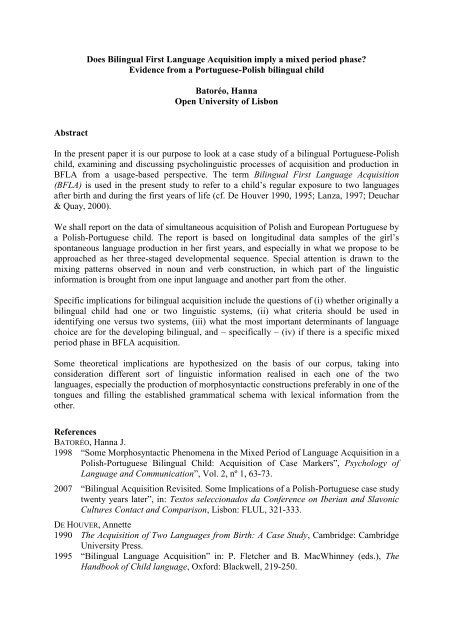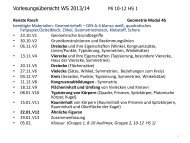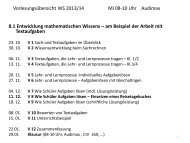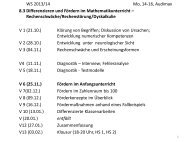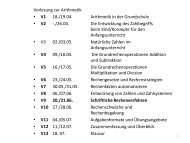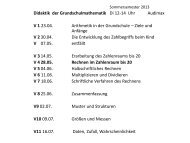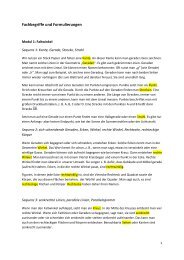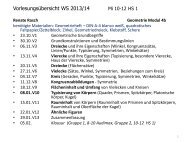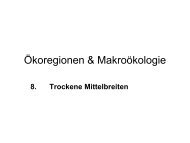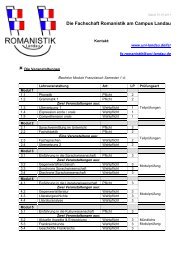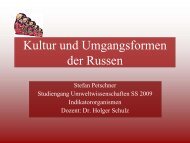Does Bilingual First Language Acquisition imply a mixed period ...
Does Bilingual First Language Acquisition imply a mixed period ...
Does Bilingual First Language Acquisition imply a mixed period ...
Create successful ePaper yourself
Turn your PDF publications into a flip-book with our unique Google optimized e-Paper software.
Abstract<br />
<strong>Does</strong> <strong>Bilingual</strong> <strong>First</strong> <strong>Language</strong> <strong>Acquisition</strong> <strong>imply</strong> a <strong>mixed</strong> <strong>period</strong> phase?<br />
Evidence from a Portuguese-Polish bilingual child<br />
Batoréo, Hanna<br />
Open University of Lisbon<br />
In the present paper it is our purpose to look at a case study of a bilingual Portuguese-Polish<br />
child, examining and discussing psycholinguistic processes of acquisition and production in<br />
BFLA from a usage-based perspective. The term <strong>Bilingual</strong> <strong>First</strong> <strong>Language</strong> <strong>Acquisition</strong><br />
(BFLA) is used in the present study to refer to a child’s regular exposure to two languages<br />
after birth and during the first years of life (cf. De Houver 1990, 1995; Lanza, 1997; Deuchar<br />
& Quay, 2000).<br />
We shall report on the data of simultaneous acquisition of Polish and European Portuguese by<br />
a Polish-Portuguese child. The report is based on longitudinal data samples of the girl’s<br />
spontaneous language production in her first years, and especially in what we propose to be<br />
approached as her three-staged developmental sequence. Special attention is drawn to the<br />
mixing patterns observed in noun and verb construction, in which part of the linguistic<br />
information is brought from one input language and another part from the other.<br />
Specific implications for bilingual acquisition include the questions of (i) whether originally a<br />
bilingual child had one or two linguistic systems, (ii) what criteria should be used in<br />
identifying one versus two systems, (iii) what the most important determinants of language<br />
choice are for the developing bilingual, and – specifically – (iv) if there is a specific <strong>mixed</strong><br />
<strong>period</strong> phase in BFLA acquisition.<br />
Some theoretical implications are hypothesized on the basis of our corpus, taking into<br />
consideration different sort of linguistic information realised in each one of the two<br />
languages, especially the production of morphosyntactic constructions preferably in one of the<br />
tongues and filling the established grammatical schema with lexical information from the<br />
other.<br />
References<br />
BATORÉO, Hanna J.<br />
1998 “Some Morphosyntactic Phenomena in the Mixed Period of <strong>Language</strong> <strong>Acquisition</strong> in a<br />
Polish-Portuguese <strong>Bilingual</strong> Child: <strong>Acquisition</strong> of Case Markers”, Psychology of<br />
<strong>Language</strong> and Communication”, Vol. 2, nº 1, 63-73.<br />
2007 “<strong>Bilingual</strong> <strong>Acquisition</strong> Revisited. Some Implications of a Polish-Portuguese case study<br />
twenty years later”, in: Textos seleccionados da Conference on Iberian and Slavonic<br />
Cultures Contact and Comparison, Lisbon: FLUL, 321-333.<br />
DE HOUVER, Annette<br />
1990 The <strong>Acquisition</strong> of Two <strong>Language</strong>s from Birth: A Case Study, Cambridge: Cambridge<br />
University Press.<br />
1995 “<strong>Bilingual</strong> <strong>Language</strong> <strong>Acquisition</strong>” in: P. Fletcher and B. MacWhinney (eds.), The<br />
Handbook of Child language, Oxford: Blackwell, 219-250.
DEUCHAR, Margaret and Suzanne QUAY<br />
2000 <strong>Bilingual</strong> <strong>Acquisition</strong>. Theoretical Implications of a Case Study. Oxford: OUP, 2001.<br />
LANZA, Elizabeth<br />
1997 <strong>Language</strong> Mixing in Infant <strong>Bilingual</strong>ism: A Sociolinguistic Perspective. Oxford:<br />
Clarendon Press.


